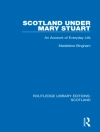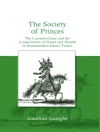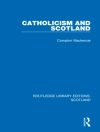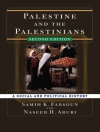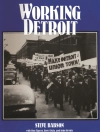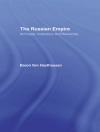As the geographic boundaries of early American history have expanded, so too have historians’ attempts to explore the comparative dimensions of this history. At the same time, historians have struggled to find a conceptual framework flexible enough to incorporate the sweeping narratives of imperial history and the hidden narratives of social history into a broader, synthetic whole. No such paradigm that captures the two perspectives has yet emerged.
New World Orders addresses these broad conceptual issues by reexamining the relationships among violence, sanction, and authority in the early modern Americas. More specifically, the essays in this volume explore the wide variety of legal and extralegal means—from state-sponsored executions to unsanctioned crowd actions—by which social order was maintained, with a particular emphasis on how extralegal sanctions were defined and used; how such sanctions related to legal forms of maintaining order; and how these patterns of sanction, embedded within other forms of colonialism and culture, created cultural, legal, social, or imperial spaces in the early Americas.
With essays written by senior and junior scholars on the British, Spanish, Dutch, and French colonies, New World Orders presents one of the most comprehensive looks at the sweep of colonization in the Atlantic world. By juxtaposing case studies from Brazil, Venezuela, New York, California, Saint Domingue, and Louisiana with treatments of broader trends in Anglo-America or Spanish America more generally, the volume demonstrates the need to examine the questions of violence, sanction, and authority in hemispheric perspective.
Tabella dei contenuti
Introduction: The Ordering of Authority in the Colonial Americas
—John Smolenski
PART I. NARRATING VIOLENCE AND LEGALITY
Introduction to Part I
1. Law’s Wilderness: The Discourse of English Colonizing, the Violence of Intrusion, and the Failures of American History
—Christopher Tomlins
2. Dialogical Encounters in a Space of Death
—Richard Price
PART II. AUTHORITY AND INTIMATE VIOLENCE
Introduction to Part II
3. The Authority of Gender: Marital Discord and Social Order in Colonial Quito
—Kimberly Gauderman
4. Private and State Violence Against African Slaves in Lower Louisiana During the French Period, 1699-1769
—Cécile Vidal
5. Violence or Sex? Constructions of Rape and Race in Early America
—Sharon Block
PART III. COLONIAL SPACE AND POWER
Introduction to Part III
6. The Murder of Jacob Rabe: Contesting Dutch Colonial Authority in the Borderlands of Northeastern Brazil
—Mark Meuwese
7. Forging Cultures of Resistance on Two Colonial Frontiers: Northwestern Mexico and Eastern Bolivia
—Cynthia Radding
8. Sorcery and Sovereignty: Senecas, Citizens, and the Contest for Power and Authority on the Frontiers of the Early American Republic
—Matthew Dennis
PART IV. RACE, CITIZENSHIP, AND COLONIAL IDENTITY
Introduction to Part IV
9. Early Modern Spanish Citizenship: Inclusion and Exclusion in the Old and the New World
—Tamar Herzog
10. Natural Movements and Dangerous Spectacles: Beatings, Duels, and ‘Play’ in Saint Domingue
—Gene E. Ogle
11. Racial Passing: Informal and Official ‘Whiteness’ in Colonial Spanish America
—Ann Twinam
Afterword
—Thomas Humphrey
List of Abbreviations
Contributors
Acknowledgments
Index
Circa l’autore
John Smolenski teaches history at the University of California, Davis. Thomas J. Humphrey is Associate Professor of History at Cleveland State University and author of Land and Liberty: Hudson Valley Riots in the Age of Revolution.


